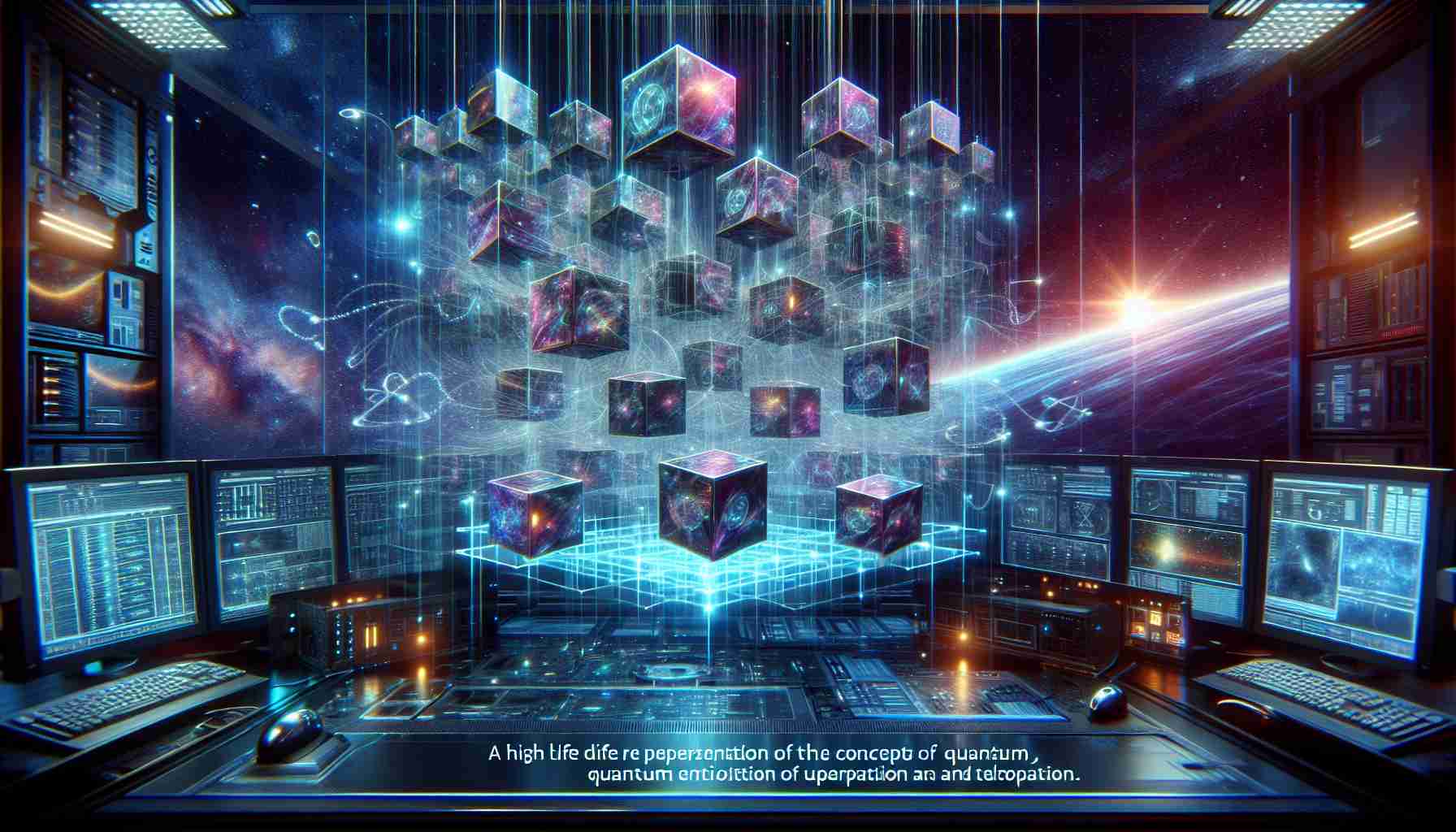NVIDIA, a leading force in the world of graphics and artificial intelligence, is taking bold strides into the quantum realm, heralding a new era of computing. In a recent announcement, the tech giant revealed its ambitious plans to merge artificial intelligence (AI) with quantum computing, aiming to push the boundaries of what’s currently possible in the digital domain.
At the core of NVIDIA’s groundbreaking venture is a novel platform designed to enhance the synergy between classical and quantum computers. This hybrid system, a fusion of NVIDIA’s famed GPUs and emerging quantum processors, is expected to offer unprecedented computational speeds and capabilities. Executives from NVIDIA emphasize the platform’s potential to revolutionize industries, from cryptography to drug discovery, by dramatically accelerating complex calculations that classical computers struggle with.
A key component of this initiative is a collaborative ecosystem involving leading academic institutions and quantum startups. Partnerships aim to foster innovation by providing development tools and resources that integrate seamlessly with NVIDIA’s existing AI frameworks, such as CUDA.
NVIDIA’s anticipated advancements in quantum computing could redefine problem-solving approaches, offering solutions that were once considered unattainable. As the widespread adoption of quantum technologies inches closer, eyes remain fixed on NVIDIA to see how their quantum ambitions unfold, and how they will impact the digital landscape over the coming decades. Whether it’s tackling global challenges or reshaping industries, NVIDIA’s foray into the quantum universe could indeed be the next technological frontier.
NVIDIA’s Quantum Leap: What It Means for the Future
NVIDIA’s foray into combining artificial intelligence with quantum computing marks a potential seismic shift in the computational landscape, paving the way for monumental advancements. But what does this mean for ordinary people and the world at large?
Intriguing Possibilities and Controversies
While NVIDIA’s hybrid platform promises to revolutionize fields such as cryptography and drug discovery, it also raises several questions. Could this technology make traditional encryption methods obsolete, triggering a digital security arms race? Moreover, how will the world adapt to the transformative impacts on privacy and data protection?
Benefits on the Horizon
Certainly, there are remarkable advantages. Quantum-enhanced AI could lead to breakthroughs in personalized medicine, climate modeling, and financial forecasting, offering tailored solutions to global challenges. Communities might experience improvements in healthcare and environmental sustainability as complex problems become solvable.
Potential Pitfalls
However, the path ahead is not without its challenges. The integration of quantum systems could exacerbate existing inequalities, favoring countries and corporations with the resources to invest in nascent technologies. Additionally, the energy demands of quantum networks might pose environmental concerns, conflicting with the very sustainability goals they aim to address.
Your Questions Answered
Will industries universally accept quantum computers, or will there be resistance due to costs and complexity? Acceptance depends on tangible benefits and gradual integration strategies that ease the transition from classical systems.
In the quest to understand the future, observers are keen to see how NVIDIA navigates these opportunities and challenges. For further insights on evolving computing technologies, visit NVIDIA’s official site or explore topics related to quantum computing through IBM’s quantum division.
NVIDIA’s strides suggest a thrilling yet uncertain future—a reminder that with every great technological leap comes both promise and peril.

















